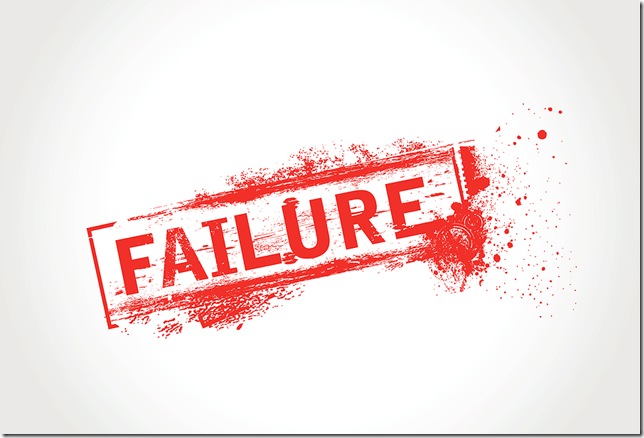
You’re still unemployed because your job search is ineffective.
I don’t accept the excuse “it’s a bad economy and that’s why you’re still out of work.”
It’s not appealing when you play the victim and adopt a LOSER mentality.
Common Frustrations of Conducting a Job Search
Yes of course – the bad economy does make job search more difficult.
Yes of course – there are fewer jobs available than when it’s a thriving job market.
Yes of course – employers are taking longer to make a decision and slowing down the hiring process
Yes of course – most recruiters have nothing to work on – so your phone is not ringing.
Yes of course – in a down job market – most employers are box-checking waiting for the perfect candidate who fits every item on their job description: “You’ve only got 7 years of food service distribution experience into Mexican Restaurants with greater than 50 rooftops in the NW region of the country – Gee whiz, we need someone with 8 years of experience selling to chains with more than 65 rooftops.” Many employers are nitpicking the details of your background – not focusing on whether you can achieve their desired results.
I know all these problems. I’ve seen candidates face them in 5-6 recessions over the last 25 years and not one of the issues related to job search frustrations is different today than it was in 1985.
However, the process of conducting a job search has changed dramatically and the vast majority of candidates DO NOT GET IT or are IN DENIAL over how to conduct an effective job search.
Allow me to share a few recent examples to drive this point home:
First Proof YOUR JOB SEARCH IS INEFFECTIVE
A few weeks ago, my partner, Brad Remillard, ran a survey on LinkedIn regarding length of time currently unemployed executives and managers have been unemployed. In an unscientific survey/poll of executive and managerial candidates, Brad discovered that over 75 percent of those currently unemployed had been unemployed for approximately one year.
Frightening. Unimaginable. Shocking. Frustrating. Incomprehensible.
I just cannot understand how anyone – unless they have a bottomless pit of money – or their spouse is the significant bread-winner – can survive for a year without working.
I hate to be the harbinger of bad news – but prepare yourself for a job market that’s close to crashing again – as if it couldn’t get any worse. We could be 18-24 months away from a job market recovery.
I digress – let’s come back to WHY YOUR JOB SEARCH IS INEFFECTIVE:
Second Proof YOUR JOB SEARCH IS INEFFECTIVE
I just finished an interview with a candidate for one of my National Account Sales Manager Searches. Before I started interviewing the candidate (let’s pretend his name is Bob to protect the innocent), I asked him some questions about his job search (an informal survey I am conducting with EVERY candidate whom I interview).
Little bit of background first: Bob has an outstanding proven track record of success for a position in area that I am recruiting for. I would suggest that there are probably at least 20-25 of these searches going on at any time. Some are being done directly by the company through traditional advertising, some are being conducted by recruiters (such as yours truly), and some are in the “hidden job market”– no recruiters and no advertising – just good old classic networking and referrals.
Every response that Bob gave me to my questions about what he was doing on his job search to find a new job was very similar to the candidates I’ve spoken to since the start of this year. Let’s peg that overall number at roughly 500 candidates based on 20-25 candidates a week.
I’ve got a dozen examples of why Bob’s job search is ineffective. It’s not one thing that’s leading to job search failure – it’s the fact that he’s not doing all 12 things effectively.
Here’s my small, itty-bitty, and trite example that is reflective of his overall job search failure:
I asked him what has he done on LinkedIn to create a compelling profile. He thought he had done a good job. I viewed his profile and it was far from compelling. In fact, I’d give it “D”. Obviously, he has not invested the time to create a compelling linkedin profile for job search.
I then asked him how many times does it show that his background has appeared in search results (about half of what the number should be weekly – he’s getting in 12-15 search results – should be 20-25).
I asked him how many times his profile had been viewed (again half the recommended volume – he’s at 5-7 and it should be 10-15). Obviously, he’s not optimized his LinkedIn Profile to appear in searches by recruiters, HR professionals, and hiring managers.
I asked him if he’s active in groups, Questions/Answers, status updates – his response was basically inactive. Obviously, he’s not using the multitude of FREE tools that LinkedIn provides for job seekers to enhance job search networking and referrals.
This is one small element of an overall effective job search – but indicative of all the other things he should be doing and is NOT doing. It’s unfortunate that he’s been out of work for almost a year – his job search should have been over in 4-6 months if he had conducted an effective job search.
Would You Like To Be Part of Our Research Study?
We are going to undertake a research study using the Key Elements of our Job Search Assessment Tool which follows the format of our Job Search Methodology. (You can download the Job Search Assessment Tool for FREE by clicking here).
One group will be those unsuspecting candidates that I interview and ask questions about their job search – we’ll correlate their length of unemployment with their job search effectiveness.
The second group – for which we need volunteers – are those executive level candidates (VP title and annual compensation of at least $150K) who would like to go through an intensive FREE course and coaching program of using our Job Search Success Methodology. We’ll track the time it takes you to find a new job using our approach.
FREE Job Search Course and Coaching Program
This FREE course and coaching program will be an abbreviated version of our formal executive job search coaching program.
My hypothesis is that those who are willing to invest the time and energy in our job search methodology will see a 50% reduction in the time it takes to find a new job.
If the average length of time to find a job in your given profession, industry, or geography is one year – you should be able to reduce that to 6 months or less using our methodology.
DON’T RAISE YOUR HAND IF YOU’RE NOT SERIOUS ABOUT FINDING A GREAT JOB QUICKLY
This is an intensive, rigorous, focused approach to job search. You’ll probably spend 60-80 hours a week on the process. You’ll be held accountable for completing assignments and tasks or you’ll be dropped from the course if you cannot keep up with the pace OR you’re not motivated to find a great job quickly.
Not everyone will be accepted into this free course and coaching program. We will only take the first 25 applicants that can pass a rigorous screening interview with high standards for excellence, commitment, stick-to-it mentality, initiative, and focus.
If you’re interested in being part of this select group, write a comment to this blog post and I’ll follow-up with you.
Barry
If you would like to be considered for this FREE course and coaching program, there are a couple of homework assignments first (I’m already donning my professorial hat):
Download the Job Search Assessment by clicking here
Download the FREE Chapter on phone interviewing in our Career Success Methodology by clicking here.
Download some of the FREE Audio Programs in our extensive library by clicking here.
Then decide if you want to raise your hand and be considered for this exclusive and elite FREE coaching program.














